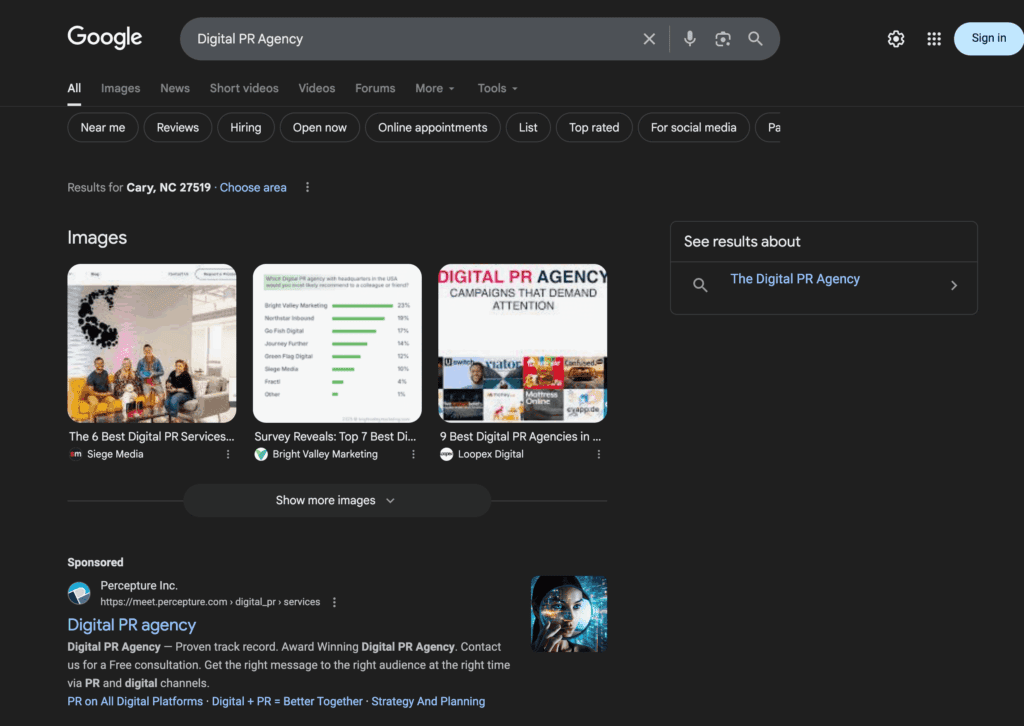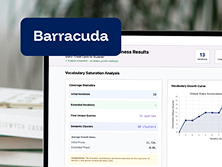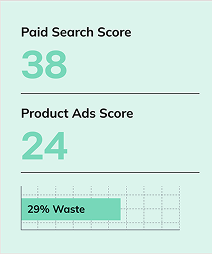Home / Blog / Using Chrome DevTools MCP with Cursor for Advanced SEO & GEO Research
Using Chrome DevTools MCP with Cursor for Advanced SEO & GEO Research

Published: September 28, 2025
Share on LinkedIn Share on Twitter Share on Facebook Click to print Click to copy url

Contents Overview
Navigating websites, analyzing search results, and providing strategic insights based on competitive intelligence forms the foundation of effective SEO and Generative Engine Optimization (GEO) efforts. These research activities require systematic data collection, pattern recognition, and strategic analysis to identify opportunities and inform optimization decisions.
Google’s Chrome DevTools MCP (Model Context Protocol) makes it possible to scale these core research functions through programmatic browser control and automated data extraction. With Chrome DevTools MCP integrated into Cursor, you can automate comprehensive competitive analysis, extract detailed SERP features, and generate structured documentation without the manual processes that traditionally define SEO research workflows.
What You’ll Learn in This Guide On Using Chrome DevTools & Cursors for SEO
Before diving into implementation, here’s what this post covers:
- How Chrome DevTools MCP integrates with Cursor for automated browser control
- How to leverage Chrome’s Accessibility API for comprehensive content extraction
- Step-by-step SERP analysis workflow using real search results
- Advanced techniques for screenshot documentation and file organization
- Why AI assistants can now help perform the SEO research tasks you currently do
Understanding Chrome DevTools MCP Architecture
Chrome DevTools MCP acts as a bridge between AI coding assistants like Cursor and live Chrome browser instances. The open-source project, available at https://github.com/ChromeDevTools/chrome-devtools-mcp, provides a Model Context Protocol server that enables programmatic browser control through Google’s DevTools Protocol.
Unlike traditional web scraping that parses static HTML, this approach uses Chrome’s native DevTools Protocol to interact with pages exactly as a human would. Best of all, it does so locally on your computer.
The system provides access to Chrome’s Accessibility API, which delivers structured representations of page content including element roles, hierarchical relationships, and semantic information. This makes it particularly valuable for SEO research where understanding content structure and user experience matters as much as raw data extraction.
Key capabilities include:
- Real-time browser automation and interaction
- Screenshot capture at page or element level
- Network request monitoring and analysis
- Performance trace recording and analysis
- JavaScript execution within page context
- Form filling and user interaction simulation
Setting Up Chrome DevTools MCP in Cursor
To implement this workflow, you’ll need Chrome DevTools MCP configured as a server in Cursor’s MCP settings. The setup process requires specific system prerequisites and configuration steps to ensure proper integration.
Prerequisites and System Requirements for Chrome DevTools MCP
Before installation, verify your system meets these requirements:
- Chrome stable version or newer: The system uses Chrome’s DevTools Protocol, requiring a current browser installation
- npm package manager: Used for downloading and managing the MCP server package
Step 1: Install Chrome DevTools MCP in Cursor
Cursor provides two installation methods for Chrome DevTools MCP:
Option A: One-Click Installation Visit the Chrome DevTools MCP GitHub repository and click the “Add to Cursor” button. This automatically configures the MCP server in your Cursor settings.
Option B: Manual Configuration If you prefer manual setup or the one-click method doesn’t work:
Add the following configuration:
- Open Cursor Settings (Cmd/Ctrl + ,)
- Navigate to the “MCP” section in the left sidebar
- Click “New MCP Server”
- Add the following configuration:
{
"mcpServers": {
"chrome-devtools": {
"command": "npx",
"args": ["chrome-devtools-mcp@latest"]
}
}
}
- Save the configuration
- Restart Cursor to activate the MCP server
Step 2: Verify Installation
To confirm Chrome DevTools MCP is properly configured:
- Open a new chat session in Cursor
- Type: “Take a screenshot of https://developers.chrome.com“
- Cursor should automatically launch a Chrome browser instance
- The system will navigate to the specified URL and capture a screenshot
- You should receive confirmation that the screenshot was saved
If this test succeeds, Chrome DevTools MCP is ready for SEO research workflows.
Step 3: Configure Advanced Options (Optional)
For SEO research workflows, consider these additional configuration options:
Isolated Mode (Recommended for research):
{
"mcpServers": {
"chrome-devtools": {
"command": "npx",
"args": [
"chrome-devtools-mcp@latest",
"--isolated=true"
]
}
}
}This creates temporary user data directories that are cleaned up after each session, preventing data contamination between research projects.
Debug Logging (For troubleshooting):
{
"mcpServers": {
"chrome-devtools": {
"command": "npx",
"args": [
"chrome-devtools-mcp@latest",
"--logFile=debug.log"
]
}
}
}Enable debug logging to troubleshoot connection issues or automation problems during complex research workflows.
Browser Options and Customization
The Chrome DevTools MCP server supports several configuration options that affect SEO research workflows:
- Headless Mode: Set to false for visual debugging and verification
- Isolated Mode: Creates temporary user data directories for clean testing environments
- Custom Executable Path: Allows targeting specific Chrome versions or Chromium builds
- Debug Logging: Enables detailed logging for troubleshooting complex automation scenarios
Real-World SERP Analysis: “Digital PR Agency” Case Study
To demonstrate the practical application of this approach, we conducted a comprehensive analysis of the “Digital PR Agency” search query. This example illustrates how Chrome DevTools MCP can extract detailed competitive intelligence without manual data collection.
Automated Data Collection Process
The analysis workflow involved:
- Navigation to Google: Programmatic browser control navigated to google.com
- Query Execution: Automated form filling entered the target search term
- SERP Capture: Full-page screenshots documented visual layout
- Content Extraction: Accessibility API provided structured data for all SERP elements
- Analysis Generation: Comprehensive competitive analysis based on extracted data
SERP Features Identified Through Automation
The automated analysis identified multiple SERP features that impact user behavior and competitive positioning:
- Paid Advertisement Placement: Three sponsored results above organic listings, indicating high commercial competition
- Local Business Integration: Map-based results with ratings and contact information for geographic targeting
- Rich Search Filters: “Near me,” “Reviews,” “Hiring” filters revealing user intent patterns
- Image Results Section: Visual content featuring agency comparison articles and rankings
- People Also Search For: Related query suggestions indicating semantic search opportunities

Competitive Intelligence Extraction
Through Chrome’s Accessibility API, the system automatically extracted title tags, meta descriptions, and content patterns from organic results:
Title Tag Patterns Observed:
The AI models then used this information to identify patterns in the SERP including:
- Direct service declarations: “Digital PR Agency | [Specialty]”
- Authority positioning: “The 6 Best Digital PR Services in 2025”
- Geographic targeting: “Digital PR Agency | NYC PR Firm”
Meta Description Strategies:
Guidance on what’s being included in meta descriptions across all the SERPs
- Results-focused messaging: “delivering measurable results”
- Social proof integration: “500+ Happy Clients”
- Unique selling propositions: “no contracts,” “AI-powered”
This level of detailed competitive analysis would typically require manual review of dozens of search results and competitor websites.
Advanced Techniques: Beyond Basic SERP Analysis
Chrome DevTools MCP provides capabilities that extend far beyond simple search result extraction.
Network Request Monitoring
The system can monitor all network requests during page loads, revealing:
- Third-party tracking and analytics implementations
- API calls and data sources
- Resource loading performance patterns
- Advertisement network integrations
This information helps identify technical SEO opportunities and competitive technology stacks.
Performance Trace Analysis
Built-in performance tracing captures Core Web Vitals and detailed loading metrics:
- Largest Contentful Paint (LCP) timing
- First Input Delay (FID) measurements
- Cumulative Layout Shift (CLS) calculations
- JavaScript execution timing and bottlenecks
These metrics support technical SEO audits and user experience optimization initiatives.
JavaScript Execution and Data Extraction
The system can execute custom JavaScript within page contexts to:
- Extract structured data and schema markup
- Analyze internal linking structures
- Capture dynamic content loading patterns
- Measure client-side rendering performance
File Organization and Documentation Benefits in Cursor
One significant advantage of using Chrome DevTools MCP within Cursor is the integrated file management and documentation workflow.
Automated Screenshot Organization
Screenshots are automatically saved to designated folders with descriptive filenames:
- screenshots/digital-pr-agency-serp-full.png
- screenshots/digital-pr-agency-serp-above-fold.png
- screenshots/competitor-homepage-analysis.png
This systematic approach ensures research artifacts remain organized and accessible for future reference or client reporting.
Structured Analysis Files
Cursor can automatically generate comprehensive analysis documents that include:
- Executive summaries with key findings
- Detailed SERP feature breakdowns
- Competitive positioning insights
- Title tag and meta description pattern analysis
- Strategic recommendations based on data
Research Process Documentation
The entire research process becomes documented and repeatable. Analysis files include methodology notes, data collection timestamps, and technical specifications that support audit trails and process improvement.
Scaling SEO Research with AI Assistants
This approach demonstrates how AI assistants can now perform sophisticated SEO research tasks that previously required significant manual effort.
Research Task Automation
AI assistants using Chrome DevTools MCP can:
- Analyze competitor content strategies across multiple queries
- Monitor SERP feature changes over time
- Extract technical SEO data from competitor sites
- Generate comprehensive competitive intelligence reports
Quality and Consistency Advantages
Automated research provides several benefits over manual approaches:
- Consistent Data Collection: Eliminates human error in data extraction
- Comprehensive Coverage: Captures details that manual review might miss
- Scalable Methodology: Applies the same analysis framework across multiple queries
- Documented Process: Creates audit trails for research methodology
Strategic Analysis Capabilities
AI assistants can synthesize collected data into strategic insights:
- User intent pattern identification across query variations
- Competitive positioning gap analysis
- Content opportunity identification based on SERP feature gaps
- Technical SEO benchmark comparisons
Implementation Considerations and Best Practices
When implementing Chrome DevTools MCP for SEO research, several practical considerations ensure successful deployment.
Resource Management
Browser automation consumes system resources. Best practices include:
- Session Management: Close browser instances after analysis completion
- Memory Monitoring: Watch for memory leaks during extended research sessions
- Concurrent Limits: Avoid running multiple browser instances simultaneously
- Data Storage: Implement cleanup routines for temporary files and screenshots
Rate Limiting and Ethical Considerations
Automated research should respect website terms of service and search engine guidelines:
- Request Throttling: Implement delays between automated queries
- User Agent Identification: Use appropriate user agent strings for automated requests
- Robots.txt Compliance: Respect website crawling restrictions
- Data Usage: Use collected data for analysis rather than republication
Quality Assurance
Automated analysis requires verification mechanisms:
- Spot Checking: Manually verify automated findings on sample queries
- Cross-Validation: Compare results across different analysis methods
- Data Freshness: Implement timestamps and data expiration policies
- Error Handling: Build robust error handling for network failures and page changes
Future Applications and Opportunities
Chrome DevTools MCP integration with AI assistants opens possibilities for advanced SEO research applications.
Longitudinal SERP Monitoring
Automated systems can track SERP changes over time:
- Feature Evolution: Monitor how Google introduces new SERP features
- Competitive Movement: Track competitor ranking changes and strategy shifts
- Seasonal Patterns: Identify query-specific seasonal ranking patterns
- Algorithm Impact: Measure SERP volatility during algorithm updates
Content Gap Analysis
AI assistants can identify content opportunities by:
- Query Expansion: Finding related queries with different competitive landscapes
- Intent Matching: Analyzing how well current content serves user intent
- Feature Targeting: Identifying SERP features where competitors lack presence
- Geographic Opportunities: Finding location-specific content gaps
Technical SEO Auditing
Automated technical analysis can evaluate:
- Core Web Vitals: Performance comparison across competitor sites
- Structured Data: Schema markup implementation analysis
- Mobile Experience: Responsive design and mobile usability assessment
- Accessibility: Compliance evaluation using Chrome’s accessibility tools
AI Assistants as SEO Research Partners
Chrome DevTools MCP integration with Cursor demonstrates how AI assistants can now perform sophisticated SEO research using the same tools and methodologies that SEO professionals use manually. This approach doesn’t replace strategic thinking and analysis but rather amplifies research capabilities and eliminates time-consuming data collection tasks. Let your AI assistant gather information in parallel to your other research efforts.
The combination of automated browser control, comprehensive data extraction, and integrated documentation creates a research workflow that is both more thorough and more efficient than traditional manual approaches. As AI assistants continue to evolve, their ability to conduct complex research tasks will only improve, making them valuable partners in competitive analysis and strategic planning.
For SEO teams looking to scale their research capabilities, Chrome DevTools MCP provides a practical starting point for automation that maintains the depth and quality of analysis while dramatically reducing the time investment required for comprehensive competitive intelligence.
The future of SEO research lies in this collaboration between human strategic thinking and AI-powered data collection and analysis. Tools like Chrome DevTools MCP make this future accessible today.

About Dan Hinckley
MORE TO EXPLORE
Related Insights
More advice and inspiration from our blog
Crawl Budget for Enterprise Ecommerce: What’s Changing in 2026
For enterprise retailers, crawl budget is the technical currency that dictates...
Noah Atwood| February 17, 2026
Why Traditional SEO KPIs Are Declining in 2026
Traditional SEO metrics are losing relevance in 2026 as AI answers...
Tony Salerno| February 10, 2026
What Brands Miss When They Treat GEO Like SEO
Treating GEO as a replacement for SEO breaks generative visibility. Learn...
Matt Parker| January 21, 2026





